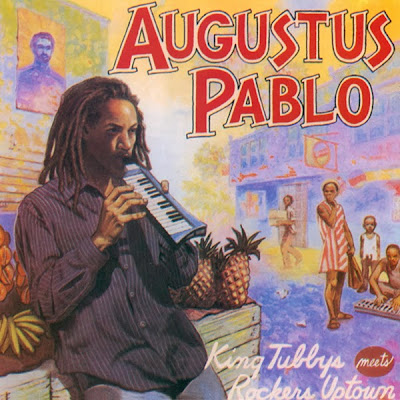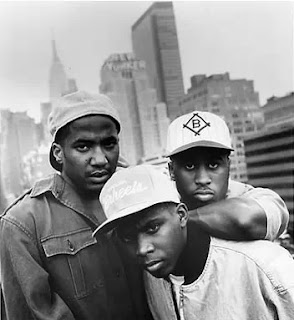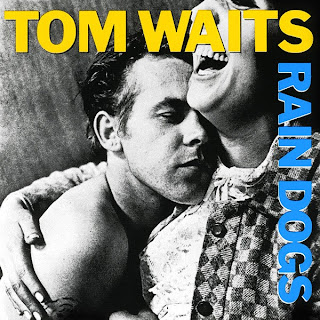 |
| Respect the hair. |
Jeff Lynne is a man of singular vision and he records and produces ELO's music in an equally singular way. Everything is large. Very large. 'Out of the Blue' is absolutely full to bursting with sweeping and swirling strings, gloriously grand and over the top choirs, pulsing synths, playful background harmonies, shimmering guitars, and Lynne's vocals soaring over all of it (i.e. Standin' in the Rain and its excellent breakdown at 1:38). Lynne's cohesive, glossy sound is the first thing that struck me as I listened these past weeks. With so many sounds stacked on one another, you can always hear everything; it doesn't become muddled. Even on the tracks I don't love, there is always something interesting going on sonically and that is a testament to the grand feat of production that Jeff Lynne and company have pulled off. Can you possibly expect anything less with a cover like this?
In an album so jam packed with excellent songs, I'm finding it a little difficult to single out a few standouts. Turn to Stone gets the album to a rollicking start; wasting no time in getting the party going. One of my absolute favorite ELO songs follows shortly thereafter: the gem that is Sweet Talkin' Woman. There is a lot of good here; an infectious chorus, playful strings, perfect background vocals, and one of my favorite musical moments on the entire record. At the the 3:13 mark most of the instruments drop out and only vocals and the beat remain and, man!, does it just get me every time. And the goods keep coming. Starlight's shimmering vocals and synths, Jungle's awesomely shamble-y nonsense chorus ('Chooka chooka koo la ley.' It's right up there with 'Ob-la-di Ob-la-da'), and Sweet is the Night's heartbreakingly gorgeous refrain prove time and again the ELO are a musical force to be reckoned with. And if all this wasn't enough, we still have Mr. Blue Sky waiting for us. Mr. Blue Sky is in a rare category of song that I never tire of hearing, I never tire of singing along to it, and even though I've heard it a hundred times, I still find new little corners in the production to explore. It's new every time and it's arguably the best song that Electric Light Orchestra ever recorded.
As with the great majority of double albums, there is some chaff amongst the wheat. With seventeen tracks there are bound to be some that just don't live up to the high standards of the songs surrounding them. Thankfully, no real clunkers are present, just a couple of tunes that don't really add anything special to the mix. The first, Across the Border, comes at the end of the first side and after the previously mentioned brilliant, Sweet Talkin' Woman. Though featuring some interesting production and horns, it's just a little too much of a paint-by-numbers rock number for me. The other bump in the road comes near the end of the record on the fourth (and overall weakest) side of the album. Birmingham Blues is another song that just plays it a little too safe for my liking; with a dime-a-dozen blues rock riff during the verses. But both of these songs are still a treat to listen to thanks to Jeff Lynne's production and instrumentation choices; always giving your ear something new to latch onto.
 |
| Hair. Hair everywhere. |
The Breakdown:
Stand-Outs: Turn to Stone, Sweet Talkin' Woman, Starlight, Jungle, Summer and Lightning, Mr. Blue Sky, Sweet is the Night
Let-Downs: Across the Border, Birmingham Blues
Rating: 9/10
Up Next: Moving from 1977 to 1986 for the next record selection. The Smiths are a band that I've been familiar with for a long time and even quite familiar with a number of their songs. But I'm confessing to you all now: I've never listened to their most acclaimed record 'The Queen is Dead' front-to-back before. I know. For shame. My musical cred is dropping by the second. So I'm going to remedy this gross oversight by spending some quality time with Morrissey and Marr for the next two weeks. And as always, please feel free to comment with your thoughts and let me know if you have any record suggestions. See you in a bit!







.jpg)















